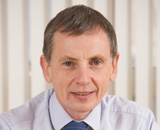 This is a tough time for public health internationally. The global financial crisis has had a deleterious effect on the social determinants of health as some governments have pursued austerity programmes differentially, which has had the greatest effect on some of the least well off in society. Organisations of public health professionals have suffered as well. The UK Public Health Association dissolved after government support was withdrawn, and similar financial pressures are affecting other national public health associations in a number of countries. In contrast, public health professionals in some lesser-developed countries have been able to develop and strengthen their organisations.
This is a tough time for public health internationally. The global financial crisis has had a deleterious effect on the social determinants of health as some governments have pursued austerity programmes differentially, which has had the greatest effect on some of the least well off in society. Organisations of public health professionals have suffered as well. The UK Public Health Association dissolved after government support was withdrawn, and similar financial pressures are affecting other national public health associations in a number of countries. In contrast, public health professionals in some lesser-developed countries have been able to develop and strengthen their organisations.
It is against this mixed background that the 13th World Congress on Public Health has opened in Addis Ababa on the theme of “Towards Global Health Equity: Opportunities and Threats.” This is only the second world public health congress to be held in Africa and comes only months after the landmark formation, by 27 countries, of the African Federation of Public Health Associations. Both events represent significant progress in building a strong global network.
There is a long and distinguished history of international co-operation on public health with the first international conference taking place in Paris in 1851. Governmental cooperation on public health issues on a global level is of course organised through the World Health Organization, but there continues to be an important role for non-governmental organisations. The World Federation of Public Health Associations was formed in 1967 and has members from every continent. It holds tight to the principal that public health is not the province of any one professional discipline and denies membership to organisations that are not truly multidisciplinary.
The conference is already judged a major success having attracted 2,600 people from 116 countries. This is largely due to the enthusiastic efforts of the Ethiopian Public Health Association under the leadership of their impressive President Tewabech Bishaw. The Congress has also had significant support from WHO’s African Region who made it possible for many delegates from other African countries to attend. The programme covers the wide span of public health interests but, not unsurprisingly, AIDS-HIV has a high profile. The core prevention message was reinforced by the inclusion of a packet of honey-flavoured condoms in the delegate pack.
You don’t have to attend many international health events to learn that opening sessions involving distinguished guests, and politicians in particular, are often the dullest part of the whole proceedings. Not on this occasion! The prime minister of Ethiopia, Meles Zenawi, officially opened the Congress with a brief but pithy speech in which he attacked the growth in income inequality both between and within countries over recent decades. He was clearly proud that Ethiopia has been judged to have the most equitable distribution of income in Africa and is one of the ten best in the world in terms of equity. This having been achieved against a background of considerable economic growth. What a great thing for a prime minister to be able to say.
Gabriel Scally is a public health physician and holds visiting chairs at the University of the West of England and the University of Bristol.